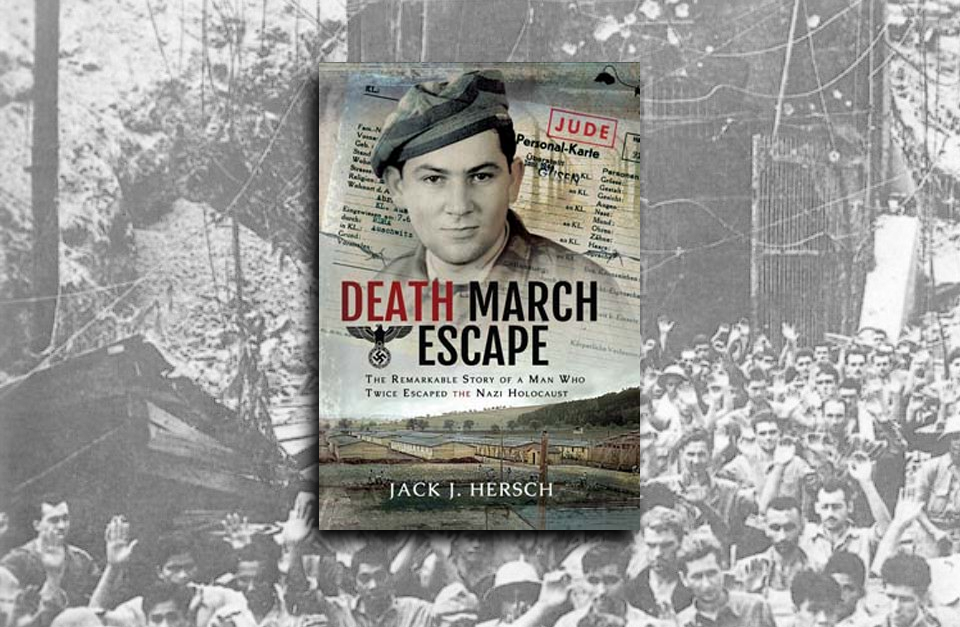Released for publication on Jan. 19, this book is a combination memoir and biography; a memoir by son Jack J. Hersch of his painstaking efforts to visualize and reconstruct the experiences of his father, Dave, who near the end of World War II twice escaped from his Nazi captors in the vicinity of the Mauthausen Concentration Camp in Austria.
Although a work of non-fiction, the work has the flavor of a suspense novel, thanks in large measure to the successful integration of three streams of information. These are, first, the story of his experiences that Dave Hersch had related, with maddening gaps, at every family seder; second, Jack’s experiences during an in-depth exploration of Mauthausen and environs; and third, the World War II progress made through Europe of the 261st Regiment, 65th Infantry Division of General George Patton’s Third Army, which ultimately liberated the area where Dave Hersch had been held prisoner, and where, following his second escape, he had gone into hiding.
What makes the reading particularly compelling is the psychological impact that his father’s story had on Jack Hersch. At times he blamed himself for not asking more while his father still was alive – a poignant reminder to all of us, regardless of where we are on the age spectrum, to share our stories and to listen carefully to those of our family members. At other times, he engaged in a form of auto psychoanalysis; perhaps, he hadn’t asked his father about all the details because he didn’t want to know. Perhaps he had feared that as a son, it would be even harder to measure up to his father’s bravery.
Jack also experienced a range of emotions as he visited places where mass murders had occurred. He was angered on the grounds of one sub-camp where now there were suburban houses; worse still, in the central administration building of one of the camps, there now lived a young family, all but oblivious to what had occurred there before. Shouldn’t all these places have been treated with special honor and respect for the memory of those who perished and those who survived? How dare normal life reassert itself in a place of such horror?
In other places, realizing the immensity of the odds that his father had overcome – odds that had militated against Jack’s very existence – Jack was brought to tears.
Still elsewhere, Jack would try to imagine what his father had felt during the times his life was most in danger, and why at the seders retelling his story, he had minimized the horrors that he had endured.
Through the course of the book, Jack reexamines his emotions several times, as behooves a man who not only was in search of his father, but also of himself.
Republished from San Diego Jewish World


























